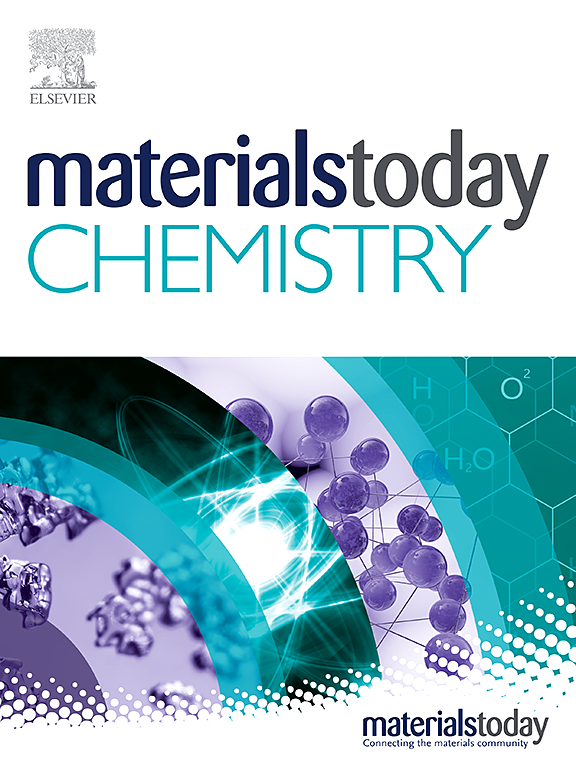Light-responsive biowaste-derived and bio-inspired textiles: Dancing between bio-friendliness and antibacterial functionality
IF 6.7
2区 化学
Q1 CHEMISTRY, MULTIDISCIPLINARY
引用次数: 0
Abstract
Functional antibacterial textiles fabricated from a hybrid of organic waste-derived and bio-inspired materials offer sustainable solutions for preventing microbial infections. In this work, we developed a novel antibacterial textile created through the valorization of spent coffee grounds (SCG). Electrospinning and electrospraying techniques were employed to integrate the biowaste within a polymeric nanofiber matrix, ensuring uniform particle distribution and providing structural support for enhanced applicability. Modification with polydopamine (PDA) significantly enhanced the textile's photothermal performance. Specific attention was paid to understanding the relation between temperature change and key variables, including the surrounding liquid volume, textile layer stacking, and applied laser power. Developed platforms demonstrated excellent photothermal stability. While the SCG-based textile demonstrated exceptional biocompatibility, the PDA-modified textile effectively eradicated () under near-infrared (NIR) irradiation. The developed textiles in our work demonstrate a dynamic balance between biocompatibility and on-demand antibacterial functionality, offering adaptable solutions in accordance with the desired application.光响应生物废料和生物启发纺织品:在生物友好性和抗菌功能性之间起舞
由有机废物衍生材料和生物启发材料混合制成的功能性抗菌纺织品为预防微生物感染提供了可持续的解决方案。在这项工作中,我们开发了一种新型抗菌纺织品,它是通过对废弃咖啡渣(SCG)进行价值评估而制成的。我们采用电纺丝和电喷雾技术将生物废料整合到聚合物纳米纤维基质中,确保颗粒分布均匀,并提供结构支撑以提高适用性。使用聚多巴胺(PDA)进行改性可显著提高纺织品的光热性能。我们特别关注了解温度变化与关键变量之间的关系,包括周围液体体积、纺织品层堆叠和应用的激光功率。所开发的平台具有出色的光热稳定性。基于 SCG 的纺织品表现出优异的生物相容性,而 PDA 改性纺织品则在近红外(NIR)照射下有效地消除了()。我们工作中开发的纺织品展示了生物相容性和按需抗菌功能之间的动态平衡,可根据所需应用提供适应性强的解决方案。
本文章由计算机程序翻译,如有差异,请以英文原文为准。
求助全文
约1分钟内获得全文
求助全文
来源期刊

Materials Today Chemistry
Multiple-
CiteScore
8.90
自引率
6.80%
发文量
596
审稿时长
33 days
期刊介绍:
Materials Today Chemistry is a multi-disciplinary journal dedicated to all facets of materials chemistry.
This field represents one of the fastest-growing areas of science, involving the application of chemistry-based techniques to the study of materials. It encompasses materials synthesis and behavior, as well as the intricate relationships between material structure and properties at the atomic and molecular scale. Materials Today Chemistry serves as a high-impact platform for discussing research that propels the field forward through groundbreaking discoveries and innovative techniques.
 求助内容:
求助内容: 应助结果提醒方式:
应助结果提醒方式:


